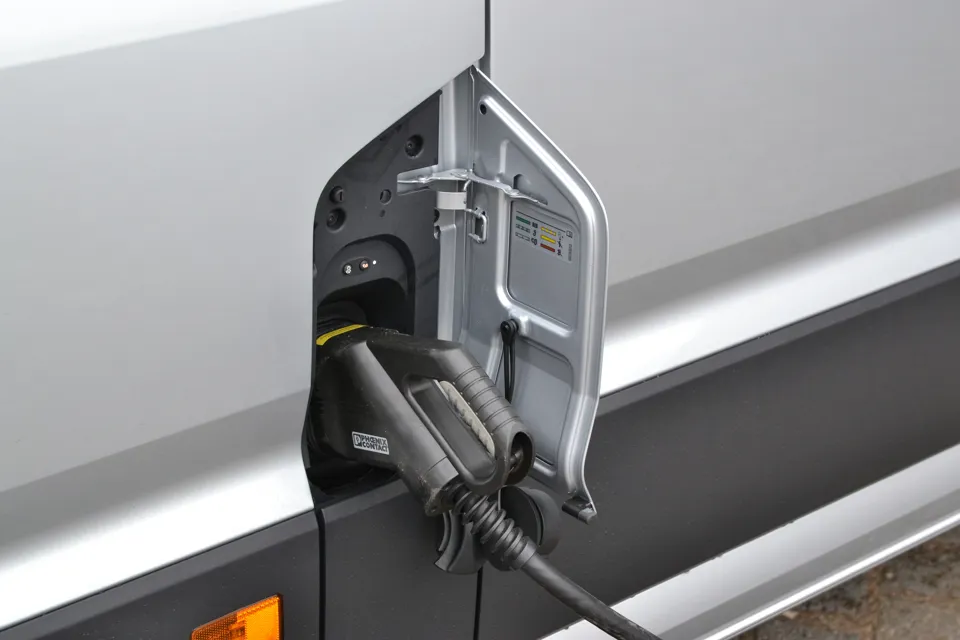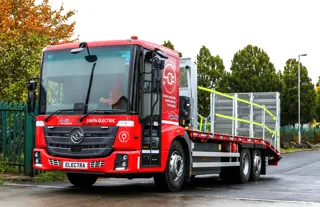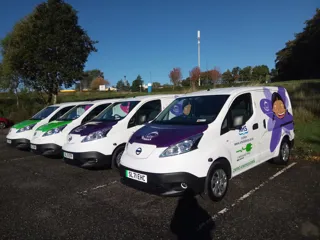Van fleet operators are being encouraged to start planning for the arrival of electric commercial vehicles in 2022, if they are not already doing so.
The advice comes from Arval UK, which says that availability of these vehicles is likely to remain constrained next year and companies that have a clearer plan of their future requirements will be in a better position to place vehicle orders and help secure supply
Paul Hyne, Arval UK commercial director, said: “We’re keen to help LCV fleets to plan ahead for their needs, as we know electric van adoption is lagging well behind that of electric cars. That’s likely to be for a number of reasons, ranging from low production numbers and current vehicle choice, to the absence of a clear and obvious tax incentive such as the benefit-in-kind situation with cars.
“However, as the production of diesel vans, just like cars, ends in 2030, fleets need to be examining in detail how to begin the process of electrification, if they’re not already doing so. Next year is a good time to take that step and order vehicles to help secure availability ahead of supplies potentially increasing in 2023.”
Arval is finding that larger van fleets tend to be further ahead with their plans to indtroduce electric vehicles (EVs).
Hyne added: “Many larger business that have put successful electric company car policies in place and are now focusing their attention on electrifying their vans.
“The general findings so far are that eLCV adoption is probably going to be trickier for many than cars – but it’s easily possible with a plan and starting the process of getting vehicle orders placed. We’re already seeing a situation where electric car whole life costs are comparable, or in some cases more favourable, than ICE vehicles, but this is not currently not as clear for van fleets.
“Operational questions are sometimes not always as easy to answer either, such as how to access overnight charging for van drivers without off-street parking and how to quickly charge vans that are used regularly for longer journeys.
“There are solutions to all of these questions, but they do require more consideration and planning than electric car adoption – this is something that we will continue to help our customers to work through over the next year.”
Feasibility studies and trials involving a small number of vans are one fleets can develop effective electrifcation policies and gain support from their drivers with ‘first-time-drive’ experiences. These vehicles can be obtained via rental, according to Arval.
Changes to the plug-in van grant in December has made the cost of switching to electric more expensive. For small vans, 2.5 tonnes gross vehicle weight (GVW) or less, the grant had given fleets 35% off the purchase price up to a maximum of £3,000. That has now been cut to £2,500. For larger vans, 2-3.5 tonnes GVW, the grant has also been reduced, from a maximum of £6,000 to £5,000.
> Interested in comparing electric vehicle data? Check out our EV tool.
> Interested in ensuring the efficient use of EVs. Check out our dedicated editorial sections: Insight & policy | EV news | Charging & infrastructure | Costs & incentives | Benefit-in-kind | EV case studies | EV road tests























Login to comment
Comments
No comments have been made yet.